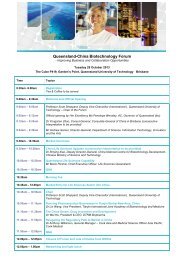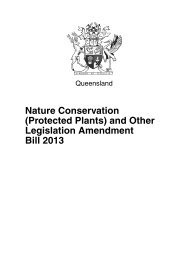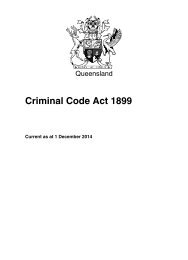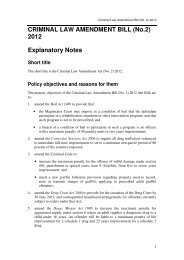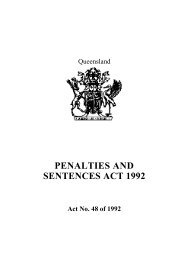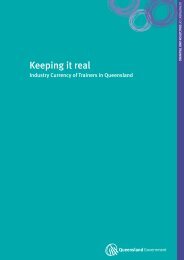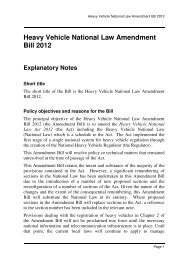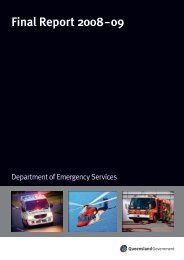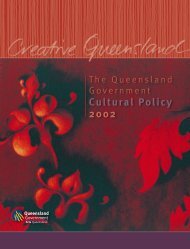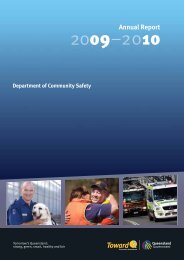Queensland Life Sciences Industry Report 2012 (PDF, 3.5MB)
Queensland Life Sciences Industry Report 2012 (PDF, 3.5MB)
Queensland Life Sciences Industry Report 2012 (PDF, 3.5MB)
You also want an ePaper? Increase the reach of your titles
YUMPU automatically turns print PDFs into web optimized ePapers that Google loves.
Our organisation’s experience in working with personnel employed<br />
by DEEDI has been highly positive. Personnel have on all occasions<br />
been thoroughly professional and always helpful.<br />
DEEDI interact very well with research organisations and provide<br />
a reasonably good level of service. DEEDI events are great. <strong>2012</strong><br />
scheduled events including the ‘Development Pathway’ workshop<br />
series are beneficial for early and late career researchers and<br />
postgraduate students. The Smart Futures scheme is fantastic and<br />
should be run annually. One criticism: where philanthropic money<br />
has been raised independently by [our organisation] for large<br />
research programs this money has not been matched by the State<br />
Government on application. This is disappointing. There are very<br />
limited opportunities to attract matching dollars through Federal<br />
funding schemes.<br />
The Department’s economic development domain appears to<br />
be skewed in favour of large organisations and projects, not<br />
the sort of smaller value-adding projects that are key to SMEs<br />
building equity value and making themselves investor-ready.<br />
The one program that appears to be relevant to SMEs (the Proof<br />
of Concept grant) is not well constructed, as it precludes either<br />
IP protection (patents) or full-time wages to key researchers<br />
within a company. The key problems for researchers within an<br />
SME are (a) to have enough income to enable them to work<br />
full-time on their companies to build enough value/construct a<br />
prototype to be attractive to Australian or overseas investors, and<br />
(b) to have a source of financial support to assist in patenting/<br />
patent preservation, required before engaging with multinational<br />
companies (to provide precisely the kind of market signal that<br />
investors require). The Commonwealth R&D tax concessions are<br />
of limited use in this respect, due to the way they are structured,<br />
limiting their utility for cash-poor SMEs. This issue is particularly<br />
bitter in the current economic climate, where debt and equity<br />
resources are both very limited, preventing the initial cash flows<br />
that the R&D tax concession scheme assumes the marketplace<br />
would provide. Obviously regulation and oversight is required to<br />
prevent wage claims and patent expenditure from being ‘gamed’,<br />
but the appropriate solution is scrutiny by project officers within the<br />
Department, not fixed regulatory exclusions that kill off the utility<br />
and relevance of the grant scheme. What is needed is initial grant<br />
funding to ‘prime the pump’ such as the <strong>Queensland</strong> Government’s<br />
former (excellent) Innovation Start-Up Scheme. There is an<br />
opportunity and a need for the <strong>Queensland</strong> Government to show<br />
leadership where the Commonwealth Government has failed,<br />
and in so doing render <strong>Queensland</strong> a more attractive place for<br />
innovation to prosper and provide economic benefits.<br />
61



